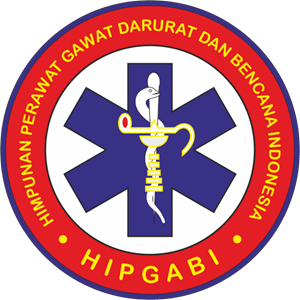PENDIDIKAN KESEHATAN DENGAN METODE SYNDICATE GROUP MENINGKATKAN PENGETAHUAN TENTANG PENCEGAHAN ISPA PADA REMAJA PUTRI DI PONDOK PESANTREN
Downloads
Intoduction: Health education was one of nursing interventions that aimed to change behavior in increasing health status that can be done with syndicate groups discussion learning method. This study was aimed to examine influence of syndicate groups method about ARIs prevention in changing female adolescence's knowledge and attitude at Amanatul Ummah Educational Institution, Mojokerto.
Methods: This study was a quasy-experiment using pretest-posttest control
group design. Population was adolescence of Nurul Ummah Boarding School (20 respondents) as the treatment group and adolescence of Amanatul Ummah Boarding School (20 respondents) as the control group, which taken according to simple random sampling. Knowledge and attitude as dependent variables and syndicate groups method as independent variable. Data were collected by using questionnaire then analyzed with level of significance p<0.05 by Wilcoxon sign rank test and Mann Whitney test.
Result: Syndicate groups method had effect on knowledge but not on attitude.
Wilcoxon test of knowledge for treatment group showed p=0.001, where Mann Whitney posttest showed p=0.000. Otherwise, Wilcoxon test of attitude for treatment group showed p=0.655, where Mann Whitney posttest showed p=0.348.
Discussion: The conclusion is health education with syndicate groups method about ARIs prevention in boarding school can increase the level of knowledge but there is no significant change in attitude. Researcher believes that there were other factors that influenced the attitude posttest results, such as: factors of respondents; factors of
facilitators, and; weaknesses of the implementation process and method of syndicate groups.
Azwar, S 2009, Sikap manusia: teori dan pengukurannya, Pustaka Pelajar,
Yogyakarta.
Deniati, I 2012, Hubungan Tingkat Pengetahuan Ibu dan Sanitasi Rumah
Terhadap Kejadian Infeksi Saluran Pernapasan Akut pada Balita di
Puskesmas Depok Jaya, Skripsi Sarjana, Universitas Pembangunan
Nasional "Veteran”, Jakarta.
Depkes RI 2008, Riset Kesehatan Dasar (RISKESDAS) 2007, Badan Penelitian dan Pengembangan Kesehatan, diakses 14 Desember 2013 <http://www.k4health.org/sites/default/files/laporan Nasional%20Riskesdas%202007.pdf>.
Badan Penelitian dan Pengembangan Kesehatan 2013, Riset Kesehatan
Dasar (RISKESDAS) 2013, Jakarta, diakses 11 April 2014
go.id/downloads/riskesdas2013/Hasil% 20Riskesdas%202013.pdf >.Gibbs, G & Habeshaw, T 1992, Preparing to Teach, diakses 14 April 2014 <http://www.keele.org.uk/docs/prepari gtoteach.pdf>.
Hinduan, AA & Susetiyono 2010, Penerapan Model Syndicate Group untuk
Meningkatkan Motivasi dan Hasil Belajar Zat dan Wujudnya untuk Kelas
VII SMP, Berkala Fisika Indonesia.
Notoatmodjo, S 2007, Promosi Kesehatan dan Ilmu Perilaku, Rineka Cipta,
Jakarta.
Rasyid, H & Mansur 2009, Penilaian Hasil Belajar, CV Wacana Prima, Bandung.
Santrock, JW 2003, Adolescence Perkembangan Remaja, edisi 6,
Erlangga, Jakarta.
Sharma, M & Romas, JA 2011, Theoretical Foundations of Health Education and Health Promotion, 2nd ed., Jones & Bartlett Learning,USA.
WHO 2007, Infeksi Saluran Pernapasan Akut (ISPA) yang Cenderung Menjadi Epidemic dan Pandemic: Pencegahan dan Pengendalian Infeksi di Fasilitas Kesehatan. Pedoman Ringkas 2007, Jenewz, diakses 11 Desember 2013 <http://www.who.int/csr/resources/pub lications/WHO_CDS_EPR_2007_8BahasaI.pdf>.
1. The journal allows the author to hold the copyright of the article without restrictions.
2. The journal allows the author(s) to retain publishing rights without restrictions.
3. The legal formal aspect of journal publication accessibility refers to Creative Commons Attribution (CC BY).

















